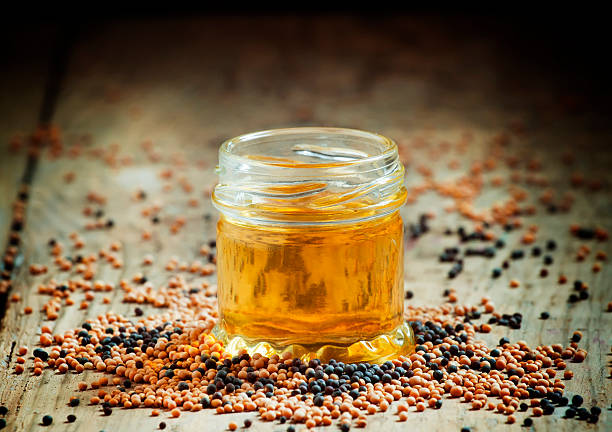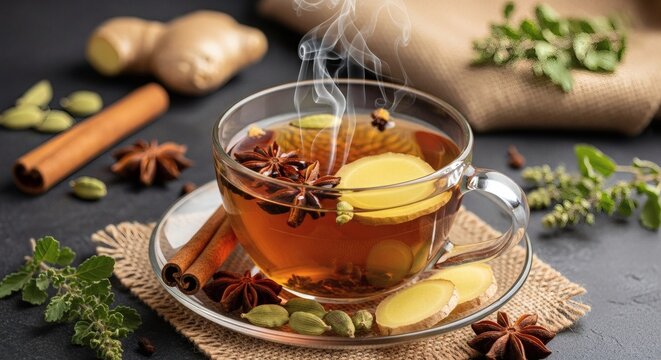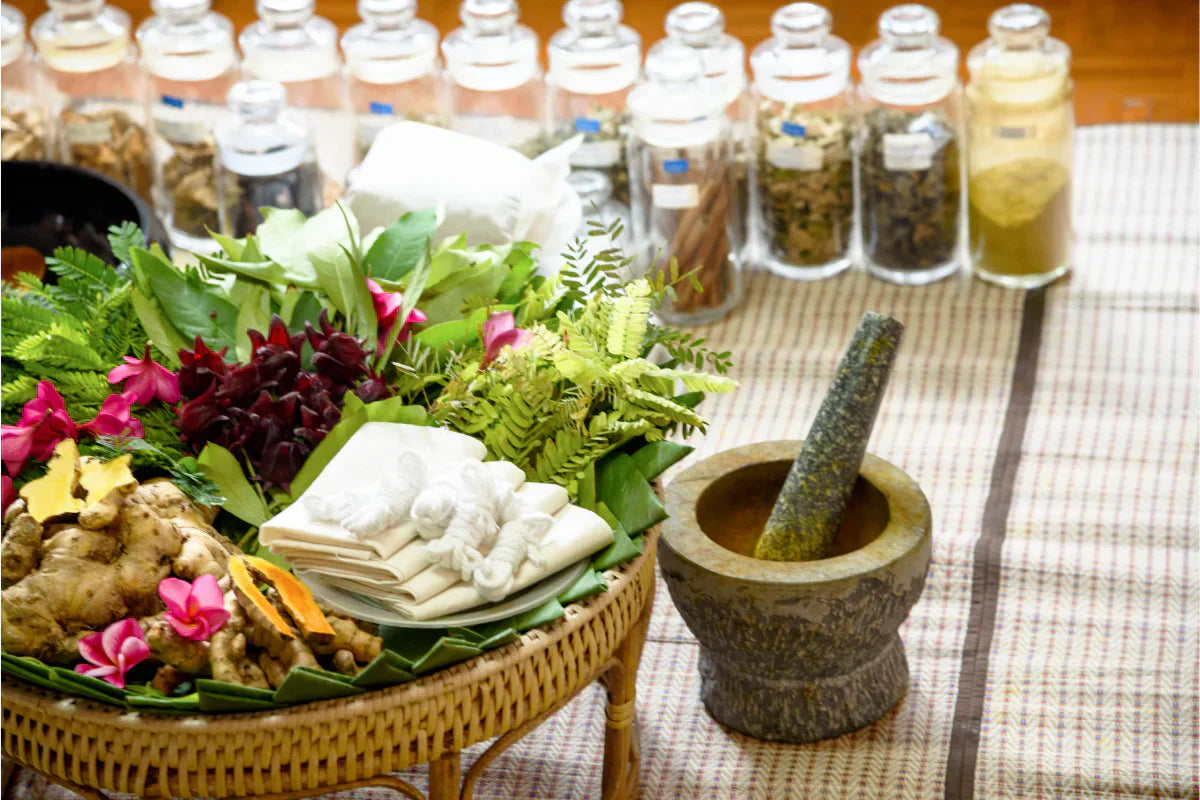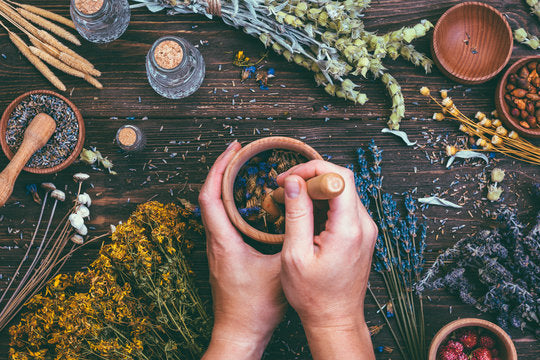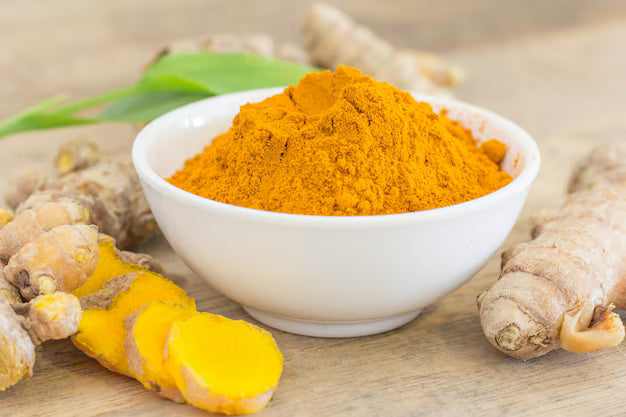How to get relief from PCOS and PCOD symptoms with Ayurveda?
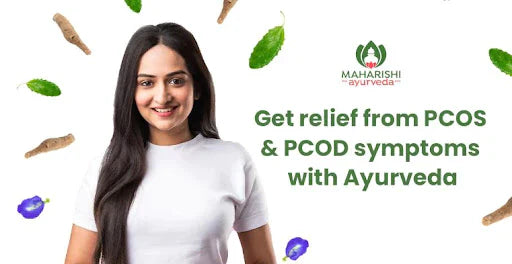
PCOS or Polycystic Ovarian Syndrome has become more and more prevalent in recent times among women of reproductive age. In this condition, women can experience irregular or prolonged menstrual periods. In addition to this, the ovaries may develop numerous fluid-filled sacs that are not capable of releasing eggs.
PCOS/PCOD is an endocrine disorder that is a major cause of Subfertility. Subfertility is referred to as a condition when someone is trying to conceive and is facing many challenges and delays.
Symptoms of PCOS/PCOD
These are some of the common symptoms of PCOS/ PCOD-
Irregular periods: Women can experience irregular periods.
Skipped Periods: There can be periods of prolonged missed periods. This can happen for months at a stretch.
Severe bleeding: This is caused due to a thicker than usual lining of the uterus. Females can experience long periods of heavy bleeding.
Hair growth: Excess hair growth in the back, belly, chest and face can take place. This condition is also called Hirsutism and can be a really annoying symptom of PCOS.
Acne: There is a higher tendency for breakouts in areas such as the face, chest and back.
Overweight: Up to 80% of females with PCOS are significantly overweight and it is shown that weight management can reduce the symptoms considerably.
Hair loss and hair thinning: Females with PCOS/PCOD can experience hair loss and hair thinning. This is caused due to the excess of androgens in the body.
Darkening of the skin: There can be dark skin pigmentation or patchy skin formation in the nose, groin, under the breasts and some other areas.
Headaches: PCOS or PCOD is a hormonal imbalance that can sometimes cause headaches.
Pelvic pain and fatigue:There can be feelings of discomfort such as pain in the pelvic area accompanied by fatigue in females with PCOS.
How to diagnose if you have PCOS or PCOD?
These are the four major ways to diagnose if you have PCOS.
Physical examination of the patient
Doctors and experts generally conduct a physical examination and ask about your medical history to rule out the possibility of hereditary problems.
Analysis of the symptoms
As discussed above, there are many physical symptoms that you can look out for in PCOS/PCOD. These symptoms are mentioned in the above section.
Menstrual History
This is one of the key tests that can help diagnose PCOS/PCOD. The analysis of the menstrual history along with the patterns of bleeding and variations in cycles over a period of multiple months can indicate the underlying condition.
Lab Tests
There are many medical tests that can be done for an accurate diagnosis of PCOS/PCOD. This includes blood tests, vaginal and abdominal ultrasonography, thyroid level tests etc. It is recommended to get a thorough medical examination done on the recommendation of your doctor to analyze the levels of different hormones in the body.
Reasons behind PCOS
High Androgen levels
A female body contains a certain amount of male hormones called Androgens. But, in PCOS, the amount of male hormones increases and can prevent the ovaries from producing eggs through ovulation during the monthly menstrual cycle. This can trigger acne and excess hair growth in the female body, one of the key symptoms of PCOS.
Reasons behind PCOS
The insulin hormone is responsible for regulating the glucose levels in the body. PCOS is a condition where many women experience insulin resistance, which means that the glucose present in the blood is not being used properly by the cells of the body. So many women with PCOS are obese and have an unhealthy lifestyle. In many cases, it is also observed that women also have a family history of Type-2 Diabetes. So, lifestyle changes are recommended to avoid Type-2 Diabetes in the future.
Ayurvedic Perspective Of PCOD/PCOS
The ancient texts of Charak Samhita have no written reference to the condition called PCOS or PCOD. In some cases, it is described as “granthi”, which refers to the development of abnormalities like cysts, ulcers, and lumps or tumors.
As per Ayurveda, PCOS can be linked to weak Rasa and Rakta Dhatus and an imbalance in the three Doshas of the body- Vata, Pitta and Kapha.
These Rasa-Rakta Dhatus are weakened due to an imbalance in the three Doshas and the buildup of Ama (toxins) in the body. This can lead to cyst formation and other symptoms of PCOS.
Normally, the reproductive system is dominated by the Vata Dosha and the female reproductive organs are made from “Artava Dhatu”, which nourishes the ovum.
Vata Dosha is responsible for the movement of follicles and ovum into the fallopian tubes in the uterus. A sub-dosha called “Apana Vayu”is responsible for the downward flow of menstrual flow. Pitta Dosha plays a key role in the production and balance of hormones in the body. The Kapha Dosha is responsible for nourishing and promoting tissue growth of follicles, uterus and ovum. So, a harmonic balance in the three Doshas plays an important part in creating healthy hormones and maintaining the health of the female reproductive system.
Ayurvedic treatment of PCOS/PCOD
Ayurveda as a holistic system of treatment offers an all-around treatment approach that takes care of the root cause of this condition. This treatment can be customized according to an individual’s condition and it is recommended to consult an Ayurveda expert before starting a treatment or therapy. The aim of the Ayurvedic treatment of PCOS is to-
1.Ayurvedic body detoxification to remove the accumulated toxins
2.Strengthening, revitalizing and nourishing the female reproductive system
3.Maintaining the hormonal balance in the body
4.Weight management and correcting insulin resistance
Ayurvedic treatment for PCOS involves the use of-
-
Herbs such as Ashwagandha, Turmeric, Shatavari, Varuna, Haritaki, Pippali, Bilva, Agni mantha, Punarvana, Guduchi, Chitraka, Shunthi, Dashmool, Shatapushpa etc are very effective in balancing the three doshas and Dhatus of the female body.
-
Ayurvedic Therapies, such as Yoga, Panchkarma and breathing exercises (Pranayama)
-
Dietary changes involve increasing the consumption of fruits, vegetables, and whole grains while reducing the intake of saturated fats, salt, refined sugar and refined carbs.
-
Ayurvedic formulations such as Varunadi Kashaya, Chitrakadi Vati, Triphala Guggulu, Punarvadi Kashaya, Shatavari Gulam etc are effective.
Recommended Panchakarma treatment for PCOS/PCOD
Panchkarma is recommended to manage the root cause by eliminating toxins from the reproductive system and gives power to the various organs such as the uterus, ovaries, Fallopian tubes, vagina & male testis. Panchkarma also helps in maintaining the hormonal balance in the body.
1. Basti (Vasti)
This panchakarma therapy is highly effective in balancing the vitiated Vata Dosha and is done by using different types of herbal oils, Ghruta, milk and other decoctions. If Sahachar Oil is used for Basti, it helps in regularising ovulation. So, Basti can help in infertility treatment, balancing the hormones, PCOS treatment, removing fallopian tube blockage etc.
2. Uttarbasti (Vasti)
Uttarbasti (Vasti) is one of the most effective therapies for gynaecological conditions. In the case of PCOS, Uttarbasti helps in dissolving ovarian cysts, flushing the Aartava Vaha Srotas, pacifying the vitiated Apana Vayu, and increasing follicular maturity.
3. Vamana
This is a cleansing technique meant primarily for the expulsion of the vitiated ‘Kapha.’ This is a painless, drug-induced emetic process (medical emesis or medical vomiting) that is effective in PCOS.
4. Virechan
This therapy helps in balancing the vitiated Pitta Dosha. It involves the cleansing of the small intestine and improves the elimination of Doshas via the rectum. It works on the hormonal balance of the female body.
5. Fertility Massage
This is a soft massage of the lower abdomen done in a particular pattern that improves the natural functioning of the uterus. It also enhances blood circulation in the lower pelvis.
Dietary tips according to Ayurveda to manage symptoms of PCOS/PCOD
The aim of taking this type of Ayurvedic diet is to nourish the Aartava Dhatu in females.
-
Women with PCOS should consume organic fruits and vegetables such as raisins, pears, plums, dates, figs etc. Seasonal fruits and berries should be included in the diet.
-
It is also advised to avoid spicy food, fermented food, dairy products, buttermilk etc. to enhance the Agni (Digestive fire)
-
Consume grains such as Ragi (nachini, Eleusine coracana)
-
Avoid taking added sugar or sugary food items and also stay away from artificial sweeteners.
Ayurvedic medicine for PCOS/PCOD
Restone Tablets are an Ayurvedic remedy for hormonal issues such as PCOS and PCOD. This natural formula helps in regularizing irregular or delayed periods and promotes healthy period flow and timely ovulation.Restone is made from time-tested herbs and ingredients that help balance hormones naturally. It also provides relief for Menstrual pain, cramps and discomfort. This Vaidya approved formulation also helps in balancing your mood on those difficult days.
My Indian Thali : A Classic Combination of Tradition and Nutrition
Diet or Ahaar always plays a key role in our day to day routine and wellbeing. Thali has been used traditionally to serve an entire meal and is the big platter that is used to accommodate all the food preparations of a certain mealtime.
In India, Thali is a popular assembly of different food items and varies from region to region. It represents India’s dining culture and is an integral part of every festival, celebration and Dincharya.
It is a balanced and nutritious meal that offers all the key nutrients needed by an individual such as carbohydrates, fibres, proteins, fats, vitamins and minerals.
The Panchamahabhuta theory of Ayurveda says that the human body is composed of the five elements(thePancha Mahabhutas), namely Earth (Prithvi), Water (Ap), Fire (Teja), Air(Vayu) and Ether (Akasha).
In addition to this, proper time(Kala Yoga), particular disposition of nature(Swabhava Samsiddhi), excellence of properties of food (Ahara Sausthava) and absence of inhibiting factors(Avighata) are the factors responsible for the growth of the body. So, a diet is planned with an aim to maintain a balance in these 5 elements so that a state of homoeostasis could be achieved.
According to Ayurveda, a normal Thali contains all the 6 Rasas namely sweet, sour, salty, pungent, bitter and astringent.
The Shada Rasa (6 tastes) according to Ayurveda
“Rasa” in Sanskrit means taste. In Ayurveda, it plays a very significant role as it helps in determining the overall effect of various food items, herbs, spices and beverages on the state of body, mind and spirit. The six rasa are-
-
Sweet (Madhura)- These food items help the body with its energy levels. This includes the food items made from grains, fruits like mango, banana, litchi, grapes, dates, natural sugar, jaggery and vegetables such as potato etc
-
Salty (Amla)- These help in keeping the body warm and increasing appetite and digestion. Sea salt, rock salt, seafood, seaweed, leafy greens like spinach are salty in nature
-
Sour (Lavana)- Sour tasting food items such as citrus fruits, tamarind, kokum, fermented foods, pickles, raw mango etc should also be included as these help in improving digestion and increases the body temperature. These should be avoided in excess as this leads to retention and hyperacidity.
-
Pungent (Katu)- Peppers, Onion, Garlic, Ginger, Chilli etc is Katu in rasa and should be consumed to enhance fat digestion, and aids in improving blood circulation.
-
Bitter (Tikta)-This includes bitter-tasting food items such as bitter gourd, neem/Indian lilac, coffee, chocolate, fenugreek etc. The bitter tendency aids in cooling the digestive tract and improving liver function.
-
Astringent (Kashaya)-This includes most vegetables, and fruits like Pineapple, Jamun, Pomegranate, Jackfruit, Raw Banana etc. These food items also aid the process of digestion.
Indian Thali: A Well Balanced Meal for your Doshas
Indian Thali is a combination of one grain, one lentil (daal) with some tadka (tempering), some vegetables, sour chutney, raita, papad, pickle, and some fats that include ghee and spices.
The thali is a perfect combination of grains and lentils that helps in fulfilling the basic needs of the human body. It provides nourishment and improves overall health and wellness.
The combination of these food items helps in improving the digestive fire (Agni) and balances the three Doshas of the body. Eating according to the Prakriti, Rasa, Quality, Quantity and Tridoshas can help in improving vitality and keeping diseases at bay.
All preparations in a Thali strengthen each other's quality and produce a synergistic effect to give us high energy levels through a balanced diet.
To Sum Up
As more and more people have a hectic lifestyle where there is less time to cook every little component of a Thali, these little accompaniments have slowly been disappearing. There is a need to pay more emphasis on balancing all the 6 Rasas in our diet as these play an important role as an appetizer and acts as taste enhancers.
Popular Posts

How to Detox Your Mind Daily? Ways for Mental Detox Explained
16 Jan, 2026Introduction People often take a bath every day, yet few of us think about cleansing the mind. In...
Read more
Reset Your Body with Our Ayurvedic Detox Course
15 Jan, 2026Ayurveda believes that at the root of ill health is an overload of ama (toxins) in our system. Fo...
Read more
Ayurvedic detox vs. Juice cleanses: What actually works?
14 Jan, 2026The modern‑day detox dilemma lies in our growing obsession with quick fixes, juice cleanses, smoo...
Read more





 Popular Read
Popular Read









































